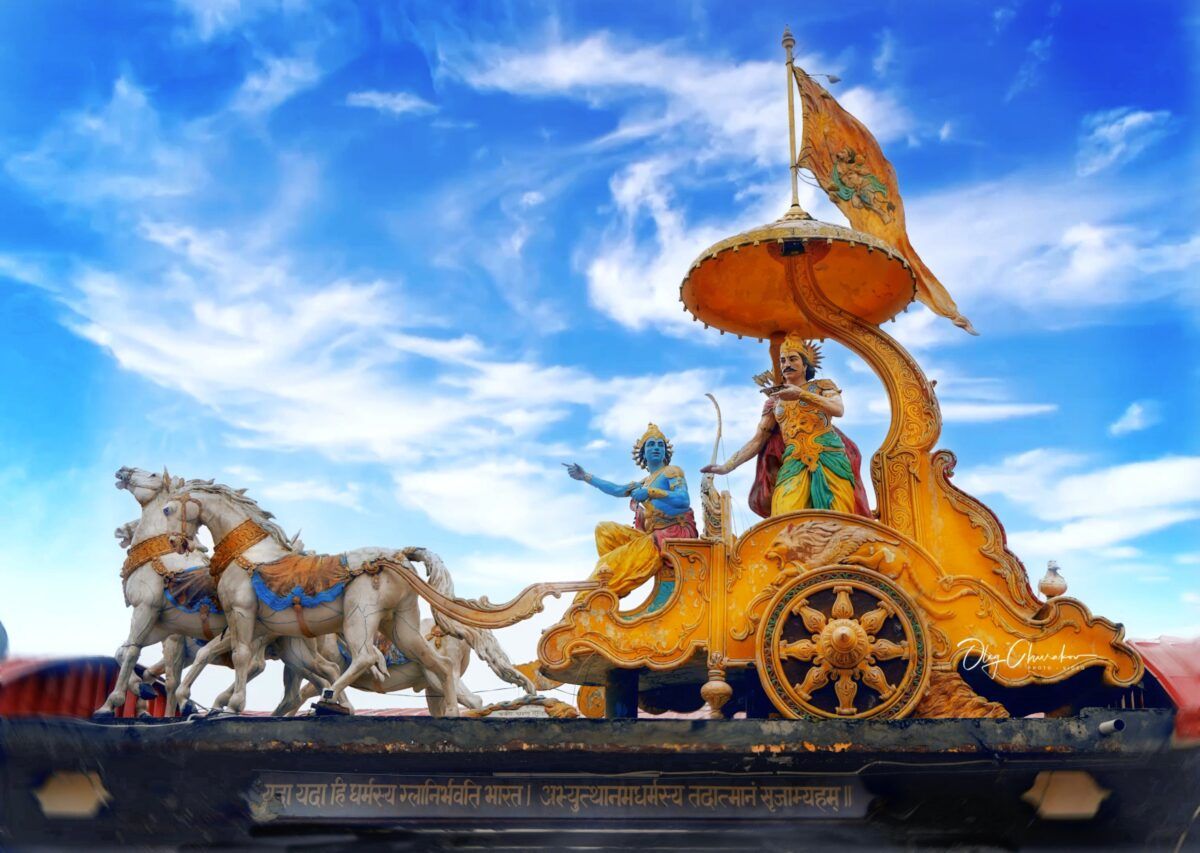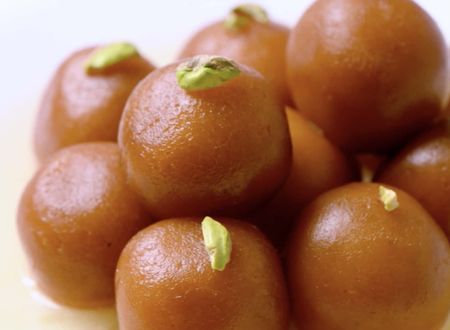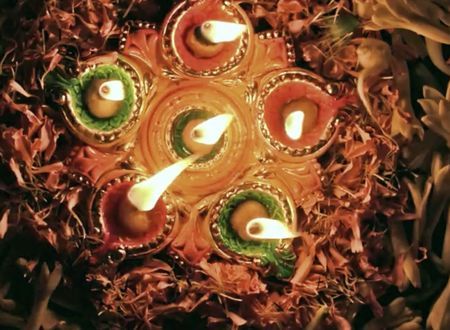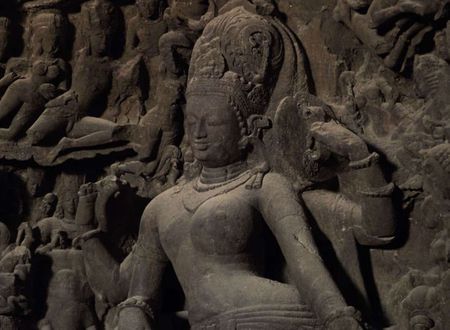History books deem Karna as one of the villains of the Mahabharata war.
Indeed – when you fight on the wrong side of Dharma, you will struggle to find support. You are judged by the company you keep. Karna was Duryodhana’s best friend. Duryodhana and his causes were undoubtedly evil. Karna supported Duryodhana in his causes. By association, Karna too was deemed evil.
This argument is not without merits. Anyone fighting on the side of adharma will find it hard support.
However, Karna had superlative qualities that remain unparalleled. His ability to give charity knew no bounds. Literally. He demonstrated loyalty to the core. He was a true friend, and his friendship with Duryodhana was rather special. His skill was an inspiration – he was an accomplished archer.
Karna is a hero in my books.
Karna Was Abandoned as a Baby for No Fault of His
Kunti Devi had occasion to do seva to the great rishi Durvasa.
Durvasa, who is well-known for his anger, was pleased with Kunti’s seva. He gave Kunti a boon – she could have children by invoking a mantra – the father would be any deity she chose.
We see teenagers making unwise decisions. Such is the folly of youth. A young Kunti wanted to try out the mantra, and invoked it thinking of the Sun God Surya. Mantras have potent power – Surya appeared before Kunti and gave her a baby: Karna. Kunti was aghast. She was not yet married. What would the world say? The presence of the baby would bring dishonor to her family.
With fear as well as a heavy heart, she abandoned Karna by placing him in the river. Charioteer Adiratha saved baby Karna. Adiratha and his wife Radha decided to raise Karna and showered lots of love on Karna.
Karna’s DNA contained archery in copious quantities, and he became an accomplished archer.
He would find out that being an archer being the son of a charioteer would bring him insults and not laurels.
Wise Elders Disregard Karna’s Skill Citing His Birth
When they were children, Duryodhana had seen Karna’s archery skills. Always on the lookout to defeat Arjuna, Duryodhana made a mental note of Karna’s skills.
When they grew up, they heard the announcement of an archery contest. The Pandavas and Kauravas signed up. Karna, too, wanted to sign up. The contest required mentioning the details of their birth and lineage so that they could be matched with contestants at their skill level. Duryodhana anoints Karna as the king of Anga, so that he can enter the competition as an equal of the Pandavas.
Karna won the contest easily.
Bhima burst Karna’s bubble – he insults Karna by calling him the son of a charioteer. Armed with this new knowledge, everyone present rejects him including the wise elders. Everyone except Duryodhana.
Duryodhana takes Karna by his hand and accepts him. Duryodhana is there for Karna when everyone else rejects him. When Karna asks Duryodhana how he can repay this favor, Duryodhana simply replies back Karna’s eternal friendship is the only thing he wants.
Was the position taken by the Pandavas and everyone else present correct in entirety?
Can Duryodhana, who stood up for a person who is down, be pure evil?
I don’t claim to know the answers.
All I know is right and wrong are not clear-cut.
Karna’s Charity Remains Unparallelled
Charity and Karna are synonymous terms.
Karna’s nature was to give. Period. He didn’t evaluate whether the recipient was deserving of the charity, whether he had the means to give, he simply didn’t care.
Arjuna once asked Krishna why Karna was the unparalelled definition of charity. By way of answer, Krishna and Arjuna disguised themselves as Brahmanas and went to beg for sandalwood for a yajna. They went to Yudhishtira first. Yudhishtira asked his men to go and cut some sandalwood, but it was raining heavily that day. Any sandalwood they cut would be wet and hence unusable for yajna. Having tried his best, Yudhishtira apologized to the Brahmanas for being unable to fulfill their request.
Arjuna and Krishna next went to Karna with the same request. Karna too sent his men to chop some sandalwood, and Karna’s men gave him the same news – the downpour meant that fresh cut sandalwood was as good as useless. Karna, however, didn’t give up. He cut wood from his house and gave it to the Brahmanas.
Let me repeat it for emphasis.
Karna was willing to chop away his own house to fulfill a request.
Arjuna then understood why Karna’s name was synonymous with charity.
He Will Not Refuse Charity Even When it Leads to His Peril
Arjuna’s father Indra wanted to protect his son.
Indra knew that Karna’s kavacha (armour) and kundala (earrings), which accompanied him from birth, would help Karna in his battle against Arjuna in the Kurukshetra war. Indra planned to disguise himself as a Brahmana and planned to ask Karna for the kavacha and kundala as alms.
Karna’s father Surya came to know about Indra’s intentions. Intending to protect his son, he appeared in Karna’s dreams and warned him that Indra would come disguised as a Brahmana and ask for the kavacha and kundala as arms.
When the Brahmana did appear before Karna and asked him for his kavacha and kundala, Karna smiled. He knew that giving them away would lead to his peril. Karna, however, did not hesitate for a second and called for a knife.
He cut off his kavacha and kundala and gave it to Indra.
Refusing to give alms was just not an option. It was as simple as that.
Karna’s Displayed Superlative Loyalty and Deep Friendship
Few would disagree that loyalty is a desirable virtue.
Disloyalty to those who have helped us is frowned upon. When we see people being loyal, our heart warms up with joy.
What if the person who helps you is the bad guy? Should you be loyal to him? Or should you be loyal to righteousness? The definitions of right and wrong get murky and messy. It is no longer easy to judge the situation into black and white standards.
Karna was loyal to the person who helped him – Duryodhana. There was only one problem: Duryodhana was the bad guy.
Karna saw loyalty as his primary duty and everything else took a backseat. He was bravely willing to pay the price for his loyalty. He would much rather die being loyal to Duryodhana than live happily after winning the war on the Pandavas’s army.
“Attachment vs Duty”
C. Rajagopalachari’s titles the 56th chapter of his Mahabharata “Attachment vs Duty”.
Kunti is aghast when she comes to know about the impending Mahabharata war. She is further aghast that Karna and Arjuna are pitted against each other. She decides to go and tell Karna who he really is. Kunti believes that when Karna knows about his true identity, he would join his brothers, the Pandavas.
She follows Karna when he goes to the river to offer his prayers and waits patiently till Karna finishes his ablutions. When Karna turns back, he is surprised to find the queen mother. He offers his surprised respects to the queen, and asks what he can do for her.
Kunti tells Karna that she is his mother and urges him to join his brothers.
Karna listens to Kunti in entirety. He calmly asks her if he is supposed to desert Duryodhana who has supported him his entire life.
Rajagopalachari implies that in that transaction Kunti’s actions were attachment-based while Karna’s response was duty-based.
Karna did assure Kunti that he would not attack any of the remaining Pandavas, he would battle only Arjuna. Regardless of the outcome of their duel, one of Kunti’s sons, Karna or Arjuna would come out alive.
This is Not to Say Karna Was Without Faults
Commentators are not totally baseless when they criticize Karna.
Karna had his flaws. Fatal flaws.
Loyalty to Duryodhana blinded his eyes.
When Draupadi was being disrobed by Dushasana, Karna egged him on.
When the Pandavas asked Duryodhana for a share of their land, Karna staunchly supported Duryodhana’s stance of not giving them their share.
Indeed, Karna had his faults.
Was it Karna’s Fault?
Was it Karna’s fault that his mother Kunti abdicated her responsibility as mother and abandoned him?
Was it Karna’s fault that wise elders pooh-poohed Karna’s archery skills citing his low birth as the reason?
Karna behaved like a normal human being – he got hurt when the wise elders did not recognize him. He chose to be friends with Duryodhana, the person who supported him when he was down.
We’ve seen movies where the gangster offers the hero money for his mother’s operation, and the hero remains loyal to the gangster, and we the audience are unsure whether to deem the hero as a good person or a bad one.
Life is complicated.
Karna’s life is an example of how we can’t easily say if Karna is good or bad.
In any case, Karna is a hero in my books.
Image Credit: Oleg Churakov on Unsplash









Comments & Discussion
18 COMMENTS
Please login to read members' comments and participate in the discussion.